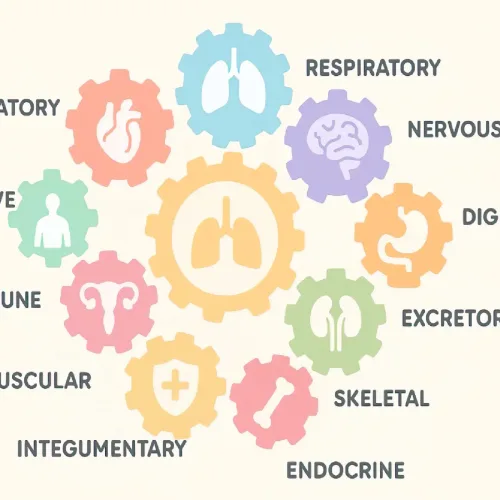Our planet is now in need of clean energy solutions. And biofuels are the perfect solutions for this demand. Organic chemistry is at the core of this green revolution. This essential field transforms natural resources into fuel. In organic chemistry in biofuel production, scientists combine plant and animal materials to replace fossil fuels with something far cleaner. Take a closer look, and you’ll see how organic chemistry shapes the biofuel’s industry. It offers an incredible path to sustainability.
What Are Biofuels, and Why Are They Important?
Any material that is derived from biomass like plant or algae material or animal waste is known as Biofuels. Biofuels can be regenerated easily rather than fossil fuels. That is why biofuels are considered to be the main source of renewable energy. Biofuels are of two types.
- Bioethanol: Bioethanol fuel is produced by the fermentation of sugar. Moreover, it can also be produced by the chemical reaction of ethylene and steam.
- Biodiesel: Biodiesel can be obtained from vegetable oils, animal fats, or we can also get biodiesel from recycled cooking oils. Biodiesel is used in diesel engines. It can reduce emissions up to 74% compared to conventional diesel engines.
Organic Chemistry’s Role in Biofuel Production
Organic chemistry is one of the basic part of biofuel production. Because, organic chemistry involves in the study of carbon compounds. And these carbon compounds are also the building blocks of this biofuel. For the production of biofuels, we need to change this organic matter into liquid fuel. By using chemical reactions, we break organic matter and change plants and animal materials into biofuels.
Our main purpose is to change the chemical structure of plants and waste materials. We aim to get useful fuel for our vehicles. We use enzymes to break down large molecules and adjust chemical bonds as our main processes. By these techniques, organic chemistry gives new life to biofuels. They are used as fuels for our vehicles.
Primary Processes in Biofuel Chemistry
1. Fermentation for Ethanol Production
Fermentation is very important in the production of bioethanol. Sugar is the main part of this process. We mainly get sugar from corns or sugarcane, and ferments them using yeast. The yeast eats sugar and as a result it produces ethanol and carbon dioxide. This process is very much like alcohol creation by yeast in brewing. Nevertheless, this is done on a larger scale for fuel production.
2. Transesterification for Biodiesel Production
Biodiesel is another popular type of biofuel. Biodiesel is produced from oils and fats. Organic chemistry shines here through Transesterification. Transesterification is the process that combines oils with an alcohol, often methanol, and a catalyst. This reaction splits the oil molecules, and create biodiesel and glycerin. This process gives us biodiesel that can gives us diesel and reduce emissions.
Combating Challenges in Biofuel Chemistry
Although, biofuels promise for a clearer future. Their chemistry also faces many challenges, as production is one of the major hurdles. Now, produced biofuels, specially biodiesel, requires expensive feedstock and catalysts. Bioethanol production also requires a large area for crops, that can interfere with the supplies of food.
Nonetheless, researchers continue developments in this field and always try to resolve this issue. For instance, algae have gained attention as a source of biofuel production. Algae grows quickly, and do not need large area for its growth. Although, it absorbs carbon dioxide during the growth. New catalysts are also being developed to make reactions faster, cheaper and more efficient. Each development in the field of organic chemistry makes biofuel production more sustainable.
Environmental Benefits of Biofuels

Biofuels give significant environmental benefits as compared to fossil fuels. They produce less carbon emissions. When biofuels are burnt, they produce carbon dioxide but in the balanced amount. When plants and algae grow, they absorb that carbon dioxide and contribute to the recycling of carbon in the atmosphere. On the other hand, fossil fuels release carbon dioxide in excessive amount, which increases greenhouse gases.
Biofuels use that waste materials that cause harm if they are not used in any process. Biofuel production can use extra plants, animals waste or even algae, that do not need fertile land. Each biofuel produced by organic chemistry helps to reduce the environmental impact while creating renewable energy.
The stone age didn’t end for lack of stone, and the oil age will end long before the world runs out of oil. — Sheikh Zaki Yamani
Future of Biofuel Chemistry
The future of biofuel chemistry looks very bright because, this technology gives cleaner and greener environment. Developments in organic chemistry gives more innovations to biofuel production. Algae based biofuels are amazingly effective. Algae grow in water and absorb significant carbon dioxide. They can also reduce the emissions even more reliably.
Researcher are investigating to develop biofuels beyond the usual crops and waste materials. Organic chemistry in biofuel production will give more benefits than fossil fuels. With the developments, we will see biofuel empowering industries and vehicles worldwide, and contributing to a cleaner future very soon.




